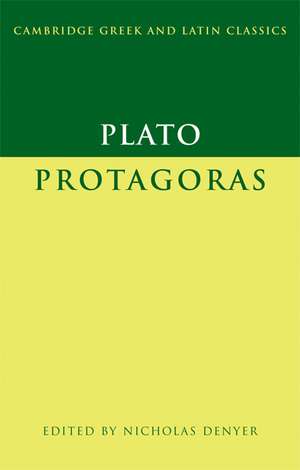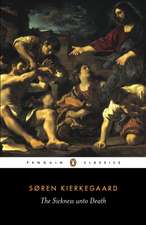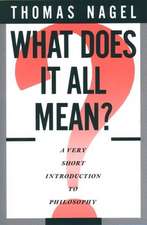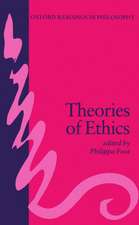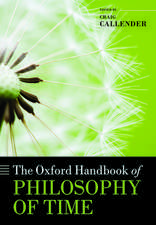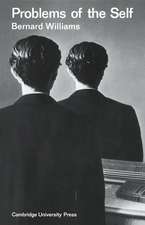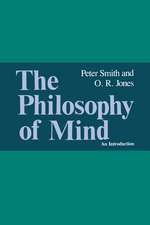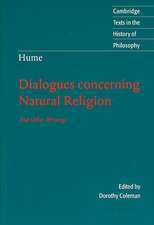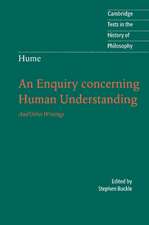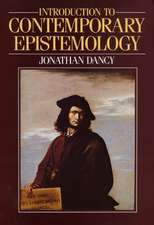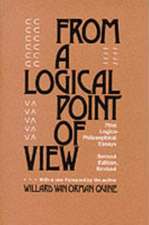Plato: Protagoras: Cambridge Greek and Latin Classics
Autor Plato Editat de Nicholas Denyeren Limba Engleză Paperback – 3 sep 2008
Din seria Cambridge Greek and Latin Classics
-
 Preț: 207.73 lei
Preț: 207.73 lei -
 Preț: 175.67 lei
Preț: 175.67 lei -
 Preț: 214.79 lei
Preț: 214.79 lei -
 Preț: 213.97 lei
Preț: 213.97 lei -
 Preț: 215.26 lei
Preț: 215.26 lei -
 Preț: 200.68 lei
Preț: 200.68 lei -
 Preț: 208.69 lei
Preț: 208.69 lei -
 Preț: 177.58 lei
Preț: 177.58 lei -
 Preț: 206.35 lei
Preț: 206.35 lei -
 Preț: 207.26 lei
Preț: 207.26 lei -
 Preț: 214.79 lei
Preț: 214.79 lei -
 Preț: 208.22 lei
Preț: 208.22 lei -
 Preț: 184.82 lei
Preț: 184.82 lei -
 Preț: 200.92 lei
Preț: 200.92 lei -
 Preț: 208.22 lei
Preț: 208.22 lei -
 Preț: 207.26 lei
Preț: 207.26 lei -
 Preț: 206.59 lei
Preț: 206.59 lei -
 Preț: 207.73 lei
Preț: 207.73 lei -
 Preț: 205.57 lei
Preț: 205.57 lei -
 Preț: 215.49 lei
Preț: 215.49 lei -
 Preț: 200.19 lei
Preț: 200.19 lei -
 Preț: 207.26 lei
Preț: 207.26 lei -
 Preț: 215.26 lei
Preț: 215.26 lei -
 Preț: 208.69 lei
Preț: 208.69 lei -
 Preț: 214.79 lei
Preț: 214.79 lei -
 Preț: 191.22 lei
Preț: 191.22 lei -
 Preț: 153.30 lei
Preț: 153.30 lei -
 Preț: 214.73 lei
Preț: 214.73 lei - 11%
 Preț: 671.02 lei
Preț: 671.02 lei -
 Preț: 261.56 lei
Preț: 261.56 lei -
 Preț: 175.91 lei
Preț: 175.91 lei -
 Preț: 205.72 lei
Preț: 205.72 lei - 8%
 Preț: 565.17 lei
Preț: 565.17 lei -
 Preț: 254.54 lei
Preț: 254.54 lei -
 Preț: 236.20 lei
Preț: 236.20 lei -
 Preț: 185.12 lei
Preț: 185.12 lei -
 Preț: 228.76 lei
Preț: 228.76 lei -
 Preț: 192.90 lei
Preț: 192.90 lei -
 Preț: 198.75 lei
Preț: 198.75 lei -
 Preț: 199.96 lei
Preț: 199.96 lei
Preț: 206.78 lei
Nou
Puncte Express: 310
Preț estimativ în valută:
39.57€ • 41.61$ • 32.69£
39.57€ • 41.61$ • 32.69£
Carte tipărită la comandă
Livrare economică 16-30 aprilie
Preluare comenzi: 021 569.72.76
Specificații
ISBN-13: 9780521549691
ISBN-10: 0521549698
Pagini: 222
Dimensiuni: 138 x 216 x 13 mm
Greutate: 0.32 kg
Editura: Cambridge University Press
Colecția Cambridge University Press
Seria Cambridge Greek and Latin Classics
Locul publicării:Cambridge, United Kingdom
ISBN-10: 0521549698
Pagini: 222
Dimensiuni: 138 x 216 x 13 mm
Greutate: 0.32 kg
Editura: Cambridge University Press
Colecția Cambridge University Press
Seria Cambridge Greek and Latin Classics
Locul publicării:Cambridge, United Kingdom
Cuprins
Introduction; Protagoras; Commentary.
Notă biografică
Plato (428/427 or 424/423 - 348/347 BC) was an Athenian philosopher during the Classical period in Ancient Greece, founder of the Platonist school of thought, and the Academy, the first institution of higher learning in the Western world.
He is widely considered the pivotal figure in the history of Ancient Greek and Western philosophy, along with his teacher, Socrates, and his most famous student, Aristotle.[a] Plato has also often been cited as one of the founders of Western religion and spirituality.[4] The so-called Neoplatonism of philosophers like Plotinus and Porphyry influenced Saint Augustine and thus Christianity. Alfred North Whitehead once noted: "the safest general characterization of the European philosophical tradition is that it consists of a series of footnotes to Plato."[5]
Plato was the innovator of the written dialogue and dialectic forms in philosophy. Plato is also considered the founder of Western political philosophy. His most famous contribution is the theory of Forms known by pure reason, in which Plato presents a solution to the problem of universals known as Platonism (also ambiguously called either Platonic realism or Platonic idealism). He is also the namesake of Platonic love and the Platonic solids.
His own most decisive philosophical influences are usually thought to have been along with Socrates, the pre-Socratics Pythagoras, Heraclitus and Parmenides, although few of his predecessors' works remain extant and much of what we know about these figures today derives from Plato himself.[b] Unlike the work of nearly all of his contemporaries, Plato's entire body of work is believed to have survived intact for over 2,400 years.[7] Although their popularity has fluctuated over the years, the works of Plato have never been without readers since the time they were written
Descriere
This book provides a commentary on the Greek text of this important work and full assistance with literary, linguistic and philosophical questions.
Recenzii
"This trio from St. John's has produced the most high-fidelity English translation of the Meno available. The Introduction offers a no-nonsense summary of the dialogue, and ample footnotes alert the reader to important Greek terms, while also situating significant claims in their historical context as well as in the context of Plato's larger corpus. The Glossary helpfully places the focus on core philosophical concepts, and the Select Bibliography makes for a manageable introduction to some of the standard scholarship. This volume is an all-around success." Charles Ives, University of Washington
"This gem of a dialogue is elegantly rendered into English, masterfully achieving the twin goals of illuminating the Greek and speaking to a modern audience. In its fifth translation of a Platonic dialogue, the team of Brann, Kalkavage, and Salem is at the top of its craft, bringing alive this important Platonic dialogue in search of a definition of virtue." Stephen Scully, Boston University
"The translation stays close to the Greek while remaining clear and lively, allowing the reader to become absorbed in the drama without losing any of the provocative details of the original. The notes provide new and experienced readers with powerful tools for better appreciating both the task of the translator and the drama of the exchange between the characters. This is a first-rate volume for engaging each of the themes raised in the Meno while offering help pulling them all together. It is an excellent point of entry into Platonic dialogues and into philosophy generally, in fine Socratic spirit." Eric Sanday, University of Kentucky
"The appearance of a new translation of a Platonic dialogue by Eva Brann, Peter Kalkavage, and Eric Salem for the Focus Philosophical Library is always exciting, and this edition of the Meno does not disappoint. The translation is highly praiseworthy for its fidelity and lucidity, accurately capturing the vocabulary of the Greek while presenting the text in an engaging, colloquial form that places it among the best English translations of Plato. The book's value is increased by an authoritative but concise introductory overview of the dialogue, extensive historical and linguistic footnotes, and detailed geometric diagrams set directly within the text, rather than in an appendix. These virtues, along with its affordable cost, make this edition a must-have for scholars and an excellent choice for teaching at all levels." Colin C. Smith, Pennsylvania State University, in Bryn Mawr Classical Review
"As one would expect from the team of Brann, Kalkavage and Salem, their edition of Plato's Meno is a fine one. The translation meets their stated goal of remaining 'as faithful as possible to the Greek, while using lively, colloquial English.' Their notes are consistently helpful and will be particularly useful to those readers willing to explore the nuances of Plato's extraordinary prose. Their introduction is clear and compact, and it highlights the most philosophically important themes of the dialogue. One particularly useful feature of this edition is the manner in which it displays the diagrams Socrates draws in order to illustrate his famous 'square within a square.' Instead of relegating them to the notes, it integrates them into the text of the dialogue itself. Readers are able to follow along, and 'watch' Socrates actually construct them." David Roochnik, Boston University
"This gem of a dialogue is elegantly rendered into English, masterfully achieving the twin goals of illuminating the Greek and speaking to a modern audience. In its fifth translation of a Platonic dialogue, the team of Brann, Kalkavage, and Salem is at the top of its craft, bringing alive this important Platonic dialogue in search of a definition of virtue." Stephen Scully, Boston University
"The translation stays close to the Greek while remaining clear and lively, allowing the reader to become absorbed in the drama without losing any of the provocative details of the original. The notes provide new and experienced readers with powerful tools for better appreciating both the task of the translator and the drama of the exchange between the characters. This is a first-rate volume for engaging each of the themes raised in the Meno while offering help pulling them all together. It is an excellent point of entry into Platonic dialogues and into philosophy generally, in fine Socratic spirit." Eric Sanday, University of Kentucky
"The appearance of a new translation of a Platonic dialogue by Eva Brann, Peter Kalkavage, and Eric Salem for the Focus Philosophical Library is always exciting, and this edition of the Meno does not disappoint. The translation is highly praiseworthy for its fidelity and lucidity, accurately capturing the vocabulary of the Greek while presenting the text in an engaging, colloquial form that places it among the best English translations of Plato. The book's value is increased by an authoritative but concise introductory overview of the dialogue, extensive historical and linguistic footnotes, and detailed geometric diagrams set directly within the text, rather than in an appendix. These virtues, along with its affordable cost, make this edition a must-have for scholars and an excellent choice for teaching at all levels." Colin C. Smith, Pennsylvania State University, in Bryn Mawr Classical Review
"As one would expect from the team of Brann, Kalkavage and Salem, their edition of Plato's Meno is a fine one. The translation meets their stated goal of remaining 'as faithful as possible to the Greek, while using lively, colloquial English.' Their notes are consistently helpful and will be particularly useful to those readers willing to explore the nuances of Plato's extraordinary prose. Their introduction is clear and compact, and it highlights the most philosophically important themes of the dialogue. One particularly useful feature of this edition is the manner in which it displays the diagrams Socrates draws in order to illustrate his famous 'square within a square.' Instead of relegating them to the notes, it integrates them into the text of the dialogue itself. Readers are able to follow along, and 'watch' Socrates actually construct them." David Roochnik, Boston University
Caracteristici
Concludes that justice, self-control (sophrosyne), and virtue (arete) are 'natural'; the city which displays them is most truly free; the individuals who possess them will achieve their true destiny.
